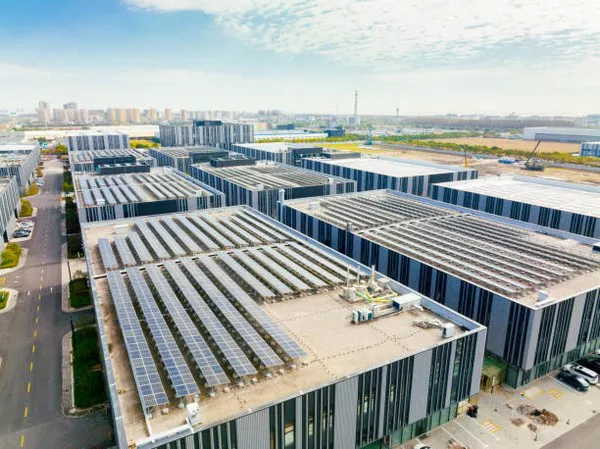As businesses increasingly seek to cut energy costs and reduce their carbon footprint, many encounter obstacles when considering conventional rooftop solar installations due to structural limitations. U.K.-based Solivus is stepping in to address this challenge by collaborating with manufacturers of innovative, lightweight solar technologies to bring solar power to commercial buildings that are typically hard to equip with traditional solar panels.
Innovative Installation at Astute Electronics
Recently, Solivus completed a notable installation of ultra-thin solar panels at the Astute Electronics warehouse located at the company’s headquarters in Hertfordshire, U.K. This installation features several hundred lightweight solar panels expected to generate approximately 30% of the warehouse’s total energy needs. This initiative not only promises to reduce energy costs but also opens the door for additional revenue by allowing Astute to sell surplus energy back to the grid.
Unlocking Rooftop Solar Potential
Solivus highlights that energy consumption in commercial buildings contributes to nearly 40% of global carbon emissions. While many warehouse operators are eager to adopt rooftop solar, weight limitations and aesthetic concerns often hinder implementation. It is estimated that around 40% of buildings cannot support the weight of conventional solar panels, particularly those with metal-sheeted roofs that have limited load-bearing capacity.
According to the U.K. Warehousing Association, although warehouses occupy one-third of commercial roof space, only 5% currently utilize rooftop solar panels. With over 420,000 warehouses in the U.K., a widespread deployment of solar solutions could potentially reduce carbon dioxide emissions by 2 million tons annually and save the sector up to £3 billion each year.
By leveraging the latest advancements in lightweight solar panel technology, Solivus is tapping into this underserved market, fostering greater adoption of rooftop solar in warehouses and other commercial structures.
The Advantages of Lightweight Solar Technology
Solivus’ ultra-lightweight solar panels are about 70% lighter than traditional options, making them suitable for buildings with stringent weight-bearing requirements. This reduced weight lowers project costs, as the panels can be installed using standard techniques that do not require invasive roof modifications. Moreover, the sleek design of these panels ensures they are less obtrusive and more visually appealing.
The core component of Solivus’ solar solution is a fiberglass board measuring 1 x 2 meters, with a thickness of roughly 4 mm, which integrates ultra-thin photovoltaic (PV) cells that are only 1 mm thick.
Advancements in Solar Cell Technology
Research into ultra-thin and lightweight PV cells is ongoing. Engineers at MIT have made strides in developing fabric solar cells that can convert any surface into a source of solar energy. These flexible solar cells, which are thinner than a human hair, can be adhered to fabric materials for easy mounting on various surfaces. Utilizing semiconductor inks through standard printing processes, these cells boast a weight significantly lower than that of traditional panels while producing 18 times more power per unit weight.
Through these innovations, Solivus is not only making rooftop solar accessible to previously unsuitable buildings but is also paving the way for a more sustainable energy future.
You Might Be Interested In

